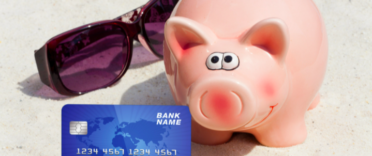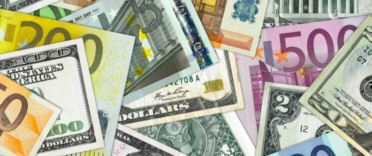 With Easter just a few weeks away some of you may be planning your first foreign trip of the year. Today I've pulled together a quick guide as to your options when it comes to taking spending money on holiday.
With Easter just a few weeks away some of you may be planning your first foreign trip of the year. Today I've pulled together a quick guide as to your options when it comes to taking spending money on holiday.
CASH
Obviously you will need to carry an element of cash for taxis, tipping etc. but having too much cash creates a security problem. Make sure you shop around for the best exchange rates available and don't leave it too the last minute as getting foreign currency at the airport is never the best deal. For more information see my article Money tip #107 – How to secure the best exchange rate on foreign currency
DEBIT CARD
A debit card, properly protected, doesn't pose the same security risk as cash and as long as your card is part of a major network you can use it in many countries. You can visit an ATM and use your card to withdraw local currency. The conversion rate and any associated fees will be shown on your statement. Using a debit card can also help you stay within budget because the card takes money direct from your current account.
However, your debit card probably won't be accepted at stores or restaurants and in rural areas finding an ATM that is part of your network might be difficult. Also, using an ATM isn't always free, if you go outside of your bank's network you may well be charged a fee.
You should also inform your bank that you plan to use your card abroad otherwise you may find their anti-fraud department has suspended your card after the first time it is used.
TRAVELLERS CHEQUES
Travellers cheques are more secure than cash and can be replaced if stolen yet they require a countersignature to be used. You can buy cheques in a range of currencies, but not all, and there is a service charge applied on issue.
You will need to go to a bank or issuing office to cash your cheques but many hotels will also offer this service. The obvious downside is that you may not be able to find a competitive conversion rate when you are in the back of beyond. Also, not all shops or restaurants will accept travellers cheques or they may charge a fee if they do.
CREDIT CARDS
Credit cards are now a very popular for use abroad as they are accepted in most places and they also offer certain protection on goods purchased, which debit cards don't. You can also use them to withdraw cash at ATM’s but there will be a charge and interest will accrue from the date of transaction, making this an expensive option. Also, double check the interest rate charges for overseas purchases levied by your credit card company as it may be higher than charges on transactions in the UK. One tip here is to always pay for transactions in the local currency as often the exchange rate offered by hotels etc. is very poor.
You will also need to inform your credit card company to ensure your account isn't blocked by their anti-fraud department.
PREPAID TRAVEL CARDS
Prepaid travel cards look like credit cards but function more like a debit card. You "load" the card with money in the currency required and then it can be used at ATM’s, shops and hotels. using a PIN number. The card can be topped up by phone or online and you can access your balance online or arrange for text updates to be sent to your mobile phone. The card can be replaced if lost or stolen and they are issued without any credit checking. There are fees involved and these vary from supplier to supplier, they may include a card loading charge as well as a cash withdrawal charge but they are not available in all currencies.
CONCLUSION
Many travellers choose a combination of two or three travel money options. Before you decide which are the best options for you make sure you check out all the fees and currency conversion charges.




